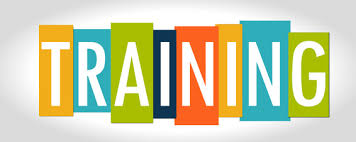 |
Nigeria Intensifies Protection to Grow Its Sugar Sector |
The Government of Nigeria has banned imports of packaged sugar, granulated and in cubes, beginning January 2013. Nigeria’s Trade and Investment Minister, Dr. Olusegun Aganga, said this was in line with the Nigerian Sugar Master Plan which aims at achieving self-sufficiency in the country’s sugar production by 2020. Imports of machinery for local sugar refineries have recently been made tariff-free and investors in domestic sugar processing also get a five-year tax holiday. Minister Aganga indicated that the National Sugar Master Plan was designed to increase local sugar production, attain self-sufficiency, reduce dependence on importation as well as create job opportunities and increase prospects of contributing to the production of ethanol. Currently, more than 90 percent of all sugar consumed in Nigeria is imported raw, mostly from Brazil, and refined by domestic sugar refineries.
Overview:
Nigeria’s Trade and Investment Minister Dr. Olusegun Aganga, together with the Executive Secretary of the country’s National Sugar Development Council (NSDC), Dr. Latif D. Busari, announced recently that the GON had banned imports of packaged sugar, granulated and in cubes, effective January 2013. According to these officials, this is being done as part of the Nigerian Sugar Master Plan, which aims to achieve self-sufficiency in sugar consumption by 2020. Also, Nigeria’s Minister for State, Agricultural and Rural Development, Dr. Bukar Tijani, (Deputy Minister for Agriculture) on a different occasion, also announced that the GON will ban all imports of sugar in any form, raw or refined, into the country by January 2015.
Pending the outright sugar ban in 2015, Minister Aganga indicated that presently all importers of brown sugar are mandated to own sugar farms in the country or contract out sugar farming to individual local farmers if they are to continue having licenses to import brown sugar for refining. He disclosed that the GON would take the issue of sugar policy implementation seriously in order to develop the country economically and create wealth for Nigerians.
According to the GON officials, the import ban on sugar would attract an estimated $3.1 billion foreign direct investment into the country, whereas the backward integration program for sugar would generate local production of 1.8 million tons of sugar and 161.2 million liters of ethanol annually. The new measures are also expected to create about 37,000 permanent jobs and approximately 80,000 seasonal jobs, save about U.S. $66 million in foreign exchange on fuel imports annually and $350 to $500 million in foreign exchange on sugar imports annually.
Domestic Sugar Production
Nigeria’s domestic sugar production in MY2011/12 is forecast at 65,000 tons (raw value), up from the revised estimate of 60,000 tons in MY2010/11. The Nigerian Sugar Development Council (NSDC) was established as the GON agency responsible for formulating sugar policies and strategies. NSDC recently refocused towards promoting private sector-led development. Government-owned sugar estates were privatized in 2005. Investment in local sugar production is hampered by the huge funds required to establish a sugar estate as well as the lack of long-term loans for investment purposes in the country. However, the management of these estates improved under privatization, which also mostly accounted for the marginal increase recorded in sugar production. For further details, see http://www.nsdc.gov.ng/sugar_impo%20fron%20incep.html
Nigeria’s Sugar Consumption
Nigeria is the largest consumer of sugar in Africa apart from South Africa, and the industry is still dependent on raw sugar imports. Nigeria’s overall sugar consumption in MY2011/12 was estimated at 1.34 million tons and raw sugar imports 1.5 million tons. However, only 100,000 tons of refined sugar was imported that year. Industry sources project Nigeria’s sugar consumption will grow 27 percent to reach 1.7 million tons by 2016. This growth projection is driven mostly by the expectation of strong population growth and the lack of available substitutes as well as increasing industrial demand.
Sugar use in industrial activities such as manufacturing soft drinks, pharmaceuticals, biscuits, other beverages and confectionery products is also rising steadily despite higher international prices, and there is no competing High-Fructose Corn Syrup (HFCS) in the market. Demand for direct household consumption also remains strong. More that 90 percent of Nigeria’s sugar needs are met by import of raw sugar, shipped mostly from Brazil, which is then refined by the local domestic sugar industry. The bulk of the available refined sugar supply is also exported from Brazil.
New Sugar Policy Measures
President Goodluck Jonathan on October 10, 2012 announced a new tariff for raw and refined sugar as well as sugar related equipment and machinery in his 2013 Budget Speech presented to the country’s National Assembly (the country’s national legislative arm). He proposed a zero per cent import duty on machinery and spare parts imported for local sugar manufacturing industries, from sugarcane to sugar value chain investors. There will also be a five year tax holiday for investors in the sugar value chain, a 10 percent import duty, and a 50 percent levy on imported raw sugar, while refined sugar will attract a 20 percent duty and a 60 percent levy. These measures became effective January 1, 2013 except for the sudden imposition of the outright import ban on refined sugar announced in mid January 2013.
Conclusion
Currently two major companies refine sugar in the Nigeria. Dangote Sugar remains the dominant player with a refinery capacity of 1.44 million tons, followed by BUA Sugar Refinery with a capacity of 720,000 tons per year. The combined capacity of the two refineries is 2.3 million tons of sugar per year, far exceeding national consumption. More investors plan to establish sugar refineries despite this existing overcapacity. Nigeria’s low five percent import tariff on raw sugar has made local sugar refining very attractive.
The sugar tariff regime seeks to boost the development of sugar cane production to meet the raw sugar needs of the existing and the upcoming domestic sugar refining companies. However, Dangote Sugar Refining Company is the only one that has developed a sugar estate which it acquired through the GON privatization program and has advanced ahead of all others in its raw sugar production capacity. Post believes that under the new tariff regime, Dangote Sugar will be the company with the largest competitive advantage.
Recommendation/Comment
While the tariff increases and import ban are expected to provide incentives for investment in local sugar production that might help reduce costs of sugar manufacturing, the impact this development may have on local food production, especially confectioneries and bakeries, is unknown. If local production of raw sugar (sugar from sugar cane) is not enough and prices increase, this will lead to increased prices for many other items that depend on sugar as a major ingredient. However, local manufacturers utilizing sugar as an input are expected to seek available and inexpensive sugar substitutes. This may create market opportunities for exporters of Sweeteners and High-Fructose Corn Syrup (HFCS). Exchange Rate: $1 = 160 Naira
Enjoy this article? Feel free to share your comment, idea or opinion in the comment section
Related Articles

|
Rethinking Training and DevelopmentA typical human resource professional confronts a myriad of challenges daily and chief among them is convincing senior management on the need to invest in staff training and development. This is somewhat surprising because employees cannot be expected to perform their duties without having the requi [Read more]
|
Posted: 8 years ago |

|
The Power of Positive Words, Actions and ReinforcementThe general definition of the term WORD is to say something, name, express, command, order or instruct. ACTIONS simply put is how we act, react, operate or the effort we put in to do something. REINFORCEMENT could be summarised as what helps to build up or increase anything.
How d [Read more]
|
Posted: 13 years ago |

|
The Basics of Principled NegotiationPreamble - The ability to negotiate with people and strike deals or reach favourable agreements is considered by some to be a specialist skill in certain professions like diplomacy, sales, legal practice and stock-broking. But the reality is we engage in negotiations of all kinds almost on a daily b [Read more]
|
Posted: 8 years ago |


